
Page 2
AYACITABHATTA-JATAKA
Offering Sacrifice To Get Release From A Vow, Is Not True
‘Release’
Pictured by : PongPang
Coloured by : Pupay
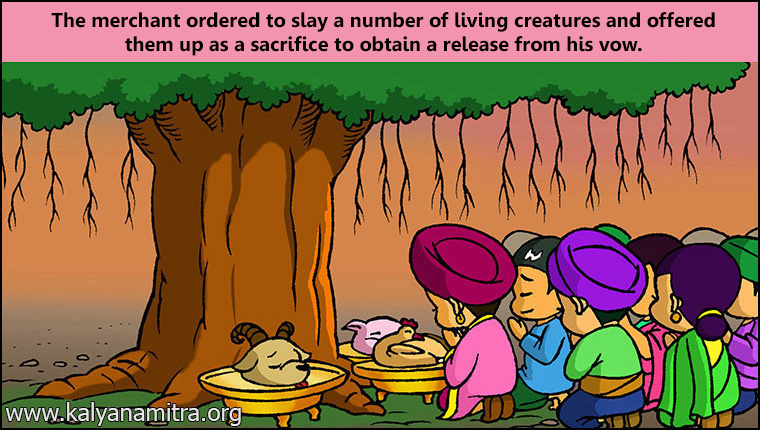
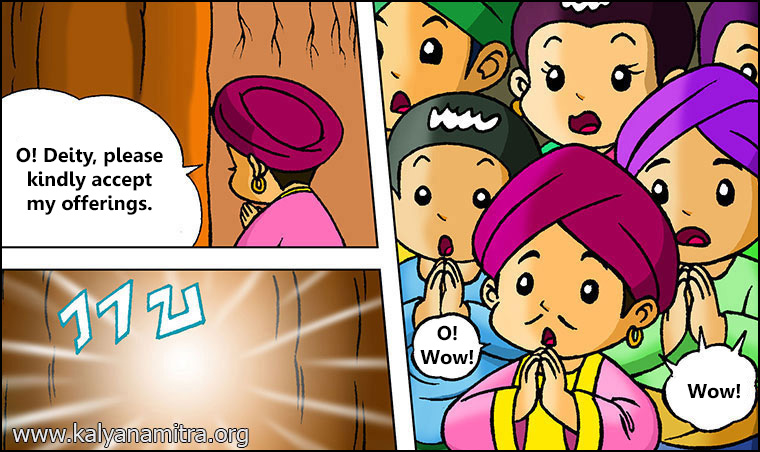
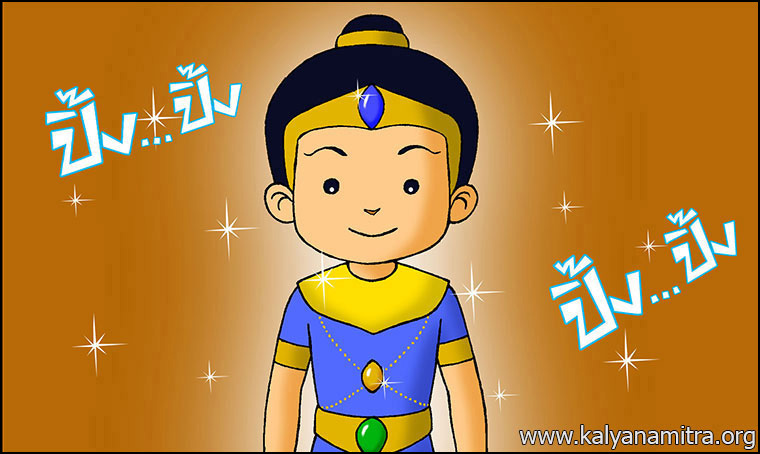
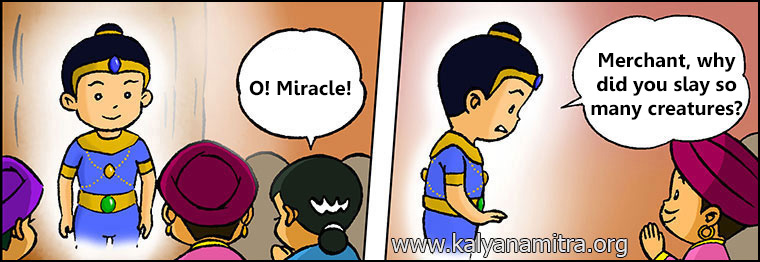


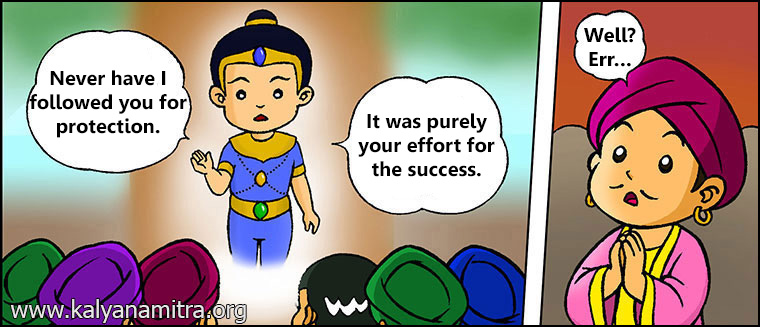
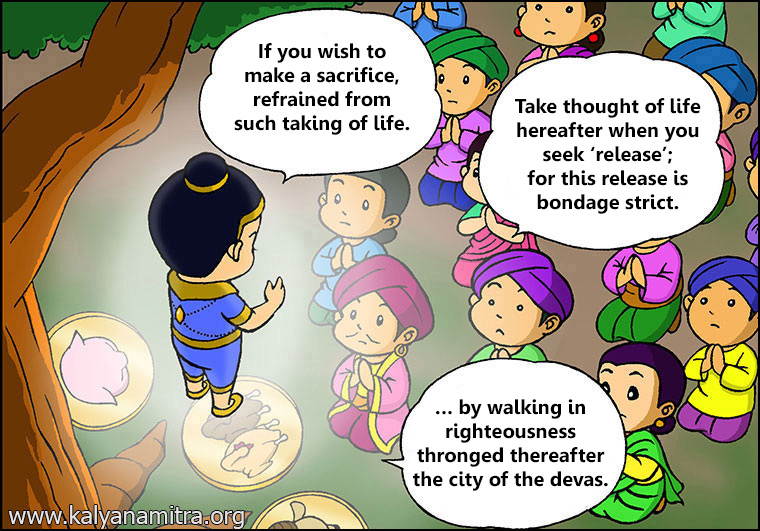
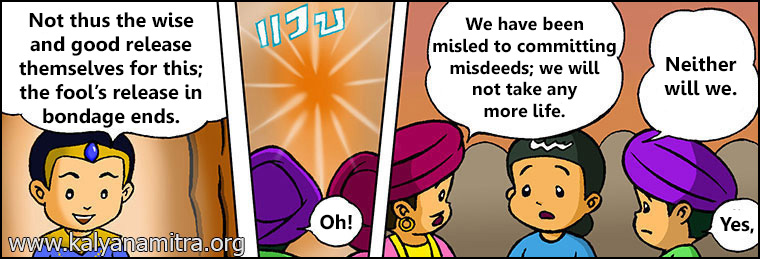
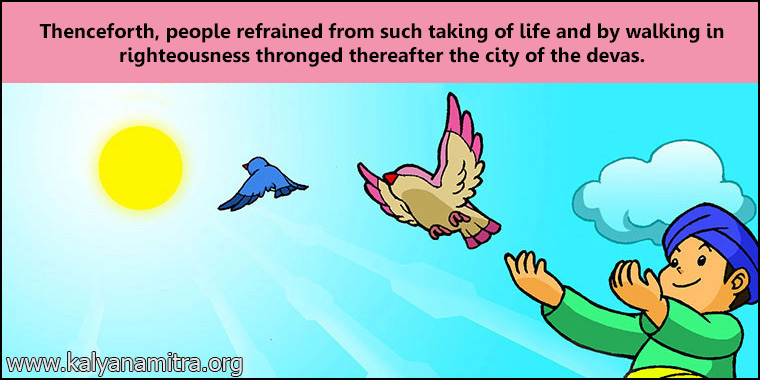
AYACITABHATTA-JATAKA
Offering sacrifice to get release from a vow, is not true
‘Release’.
The Origin of the Story
This story was told by the Lord Buddha while was dwelling at Jetavana monastery about the offering of a sacrifice under vow to gods.
Tradition says that in those days folk, when going a journey on business, used to slay living creatures and offer them as a sacrifice to gods and set out on their way, after making this vow, —‘If we come safely back with a profit, we will give you another sacrifice.’ And when they did come safely back with a profit, the idea that this was all due to gods made them slay a number of living creatures and offered them up as a sacrifice to obtain a release from their vow.
When the Bhikkhus became aware of this, they asked the Blessed One, saying, ‘Can there be any good in this, sir?’ The Blessed One told this story of the past.
The story of Jātaka
Once on a time in the Kasi country, the squire of a certain little village had promised a sacrifice to the deity of a banyan tree which stood at the entrance to the village. Afterwards when he returned, he slew a number of creatures and betook himself to the tree to get released from his vow.
Before being off, he ordered his servants to well prepare for the business journey. During the inter-city travelling, at night guards were laid to ensure safety; servants were instructed to properly use the provision. The merchant himself was skill in weather condition and savvy in demand and supplies in the foreign market, thus commodities were sold out with high profit margin.
Before travelling back, he bought foreign products to sell in his home town to make another round of business.
On returning, the merchant was delighted at money he made and gratitude to the deity dwelling at the banyan tree, believing that due to the deity’s power, his trade was good and the journey was smooth. Upon arrival, he was welcomed by people who were excited to shop for the new arrival products.
The merchant ordered to prepare foods and living creatures as the sacrifice offered to the banyan tree deity to release his vow.
At the banyan tree, the deity appeared and asked, …
‘Merchant, why did you cause many living creatures to be killed?’
At the sight of the deity before them, they answered, ‘Due to your help in my journey on business and the success in trades, we offer this sacrifice in gratitude for your protection.
The deity laughed and said, ‘At all time, I have been living at this banyan tree, never rendered you any protection. All the success and safety on the journey were due solely to your own effort and capability.’
‘Listen well, take thought of life hereafter when you seek ‘release’; for this release is bondage strict. Not thus the wise and good release themselves; for this, the fool’s release, in bondage ends.’
After uttered the stanza, the deity disappeared. Thenceforth, people refrained from such taking of life and by walking in righteousness thronged thereafter the city of the devas.
The revealing of the identities
His lesson ended, the Lord Buddha showed the connection and identified the birth by saying, ‘I was the tree deity of those days.’
What are learned from the story:
1. Taking living being’s life no matter for what reason will reap no merit fruition but suffering consequences.
2. Offering proper requisites to monks or novices then sharing the accrued merit to deity is considered a true sacrifice.
3. Being successful is the effect of the cause of working hard and smart rather than of making a vow to a god.
The End.